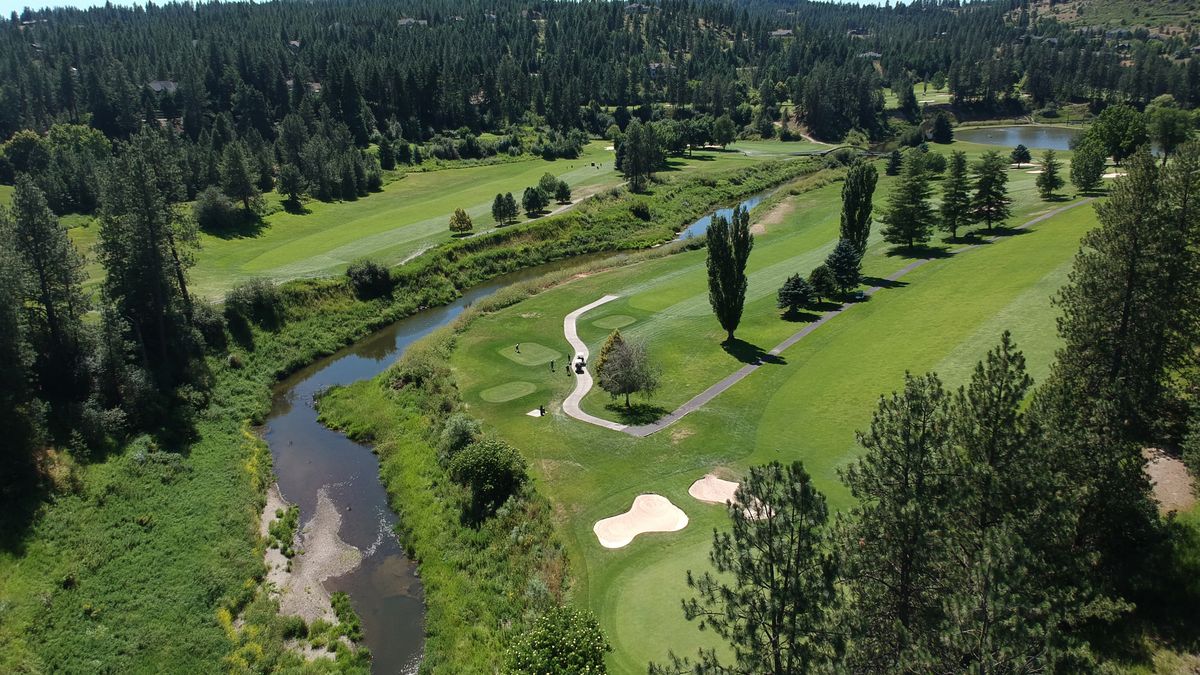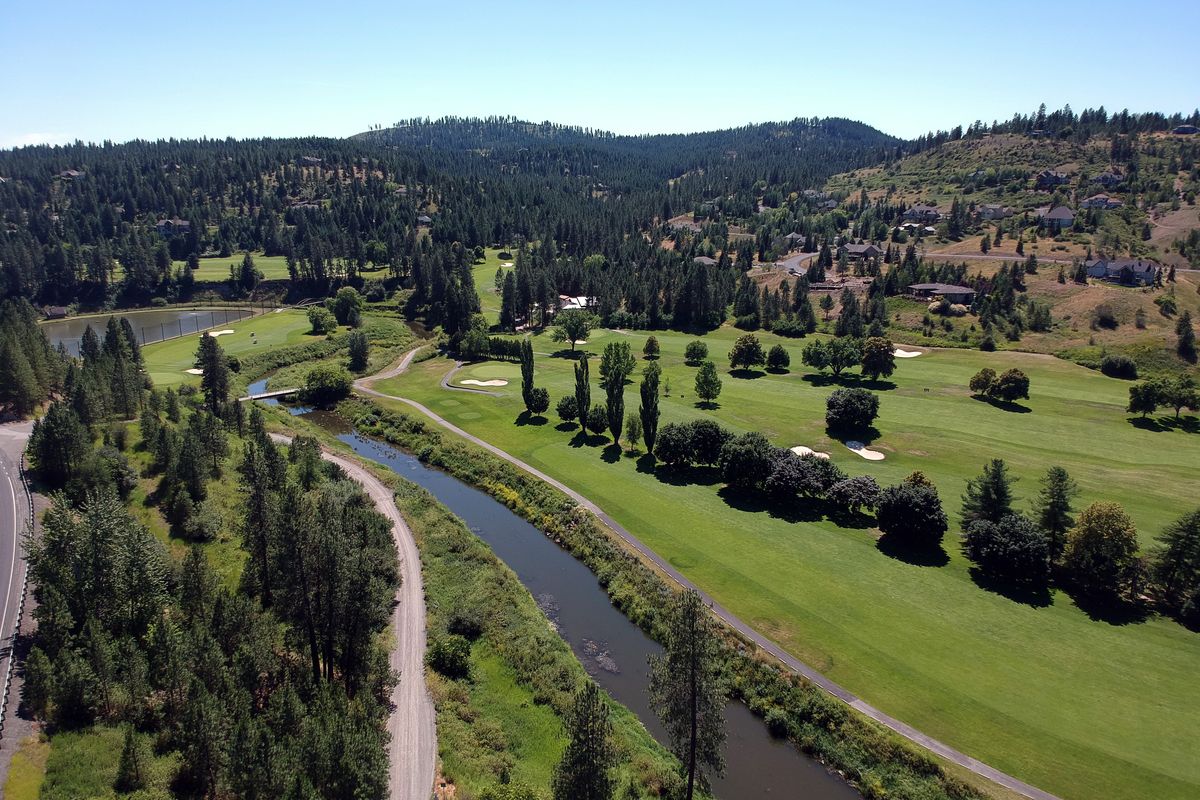Name changes pursued for Hangman Valley Golf Course over atrocities against Native Americans

As statues are toppled and cities review names tied to racism and colonialism, Hangman Valley Golf Course and Fort George Wright Drive could soon be renamed to avoid association with atrocities committed against Native Americans the 1850s.
Spokane County Commissioners agreed to change the name of Hangman Valley Golf Course during a meeting last week, after they received the suggestion from Spokane City Councilwoman Betsy Wilkerson.
Wilkerson, who hopes to change the name Fort George Wright Drive in Spokane, said the area is due for a review of names associated with offensive acts. She said having to live around places with such names feels similar to having to acknowledge a slave owner or walk past a Confederate statue.
“Nobody says who (Wright) was and what he did. His atrocities were great,” Wilkerson said. “I look at that from a cultural bent, and it’s now time to do something different and the tribes deserve something different.”

Hangman and Wright are both associated with a war between the United States and Pacific Northwest tribes over white settlement of the area.
Under Army Col. George Wright, Yakama War Chief Qualchan and other Native Americans were hanged without trials. Wright also ordered the slaughter of 600 horses that belonged to the tribes.
Qualchan was married to Spokane Tribe member Whist-alks and was in the Spokane area to assist the tribe in conflicts with white settlers and the U.S. military, said Warren Seyler, a local history educator and former Spokane Tribe of Indians board member.
Seyler said Qualchan came to Wright’s camp after being injured in battle, believing they would be discussing peace. When he arrived, Qualchan discovered his father was a shackled prisoner, and he was hanged.
Spokane County has attempted to change the name Hangman once before, when former County Commissioner John Roskelley spearheaded an effort in 1997. Roskelley called Wright a “brutal killer” and said he would still be behind a name change if the tribes found the name “Hangman” offensive.
Roskelley was able to pass a resolution changing the name from Hangman to Latah Creek in 1997, but the Washington Board of Geographic Names later rejected the proposal after some in the Native community opposed it. Latah, a name connected with food and fishing, is a name Lewis and Clark heard from native tribes when traveling through the Pacific Northwest and was the name written on early maps of the area.
Seyler, who was a Spokane Tribe board member at the time but does not currently represent the tribe, said the board sent the proposal to the tribal elders to hear their perspective and many were against it, fearing that a name change could erase the event from history. He said those events were not taught in many public schools then, and often are not today.
“We worked so hard to get the history out, why would we hide what took place?” he said.
County Commissioner Al French and Josh Kerns both said they supported the name change, unless local tribes opposed it.
“We’re not trying to erase history, we’re trying to be sensitive to the impacts that name might have for the Native American community,” French said.
He encouraged anyone in the native community who took issue with a name change to reach out to the county.
Kerns said he wanted to leave new name suggestions to the golf committee, but said Latah Valley Golf Course seemed appropriate.
Spokane County Parks Director Doug Chase said he is working to connect with local tribes to hear their perspectives on a potential name change. Once the county’s golf committee meets again, he said, they will likely make a recommendation to commissioners. He said the process may change slightly over time, and could take awhile due to limited staff and the need to collect input from the golf committee and the tribes.
“This is one of those projects that we’ll absolutely take our time with, and it’s most important to try to do it right, as opposed to fast,” Chase said.
Hangman Valley Golf Course is one of several names that could be changed in the next year or so.
Wilkerson and fellow Spokane City Councilwomen Candace Mumm, Lori Kinnear and Karen Stratton all said they were behind changing the names of such things as Fort George Wright Drive and perhaps the Hangman/Latah Neighborhood Council.
All four councilwomen said they planned to include local tribes in any name-changing efforts.
Stratton said she’s wanted to change Fort George Wright Drive for years, and now may be an opportunity to get traction on a such a proposal.
Stratton said her grandmother was raised on the Spokane Indian Reservation and always felt unwelcome and uncomfortable in Spokane. She said she’s hopeful that changing names associated with violence against Native Americans could, in a small way, help native people.
“Now’s the time for those discussions and to bring in the community,” she said. “It’s so instrumental in making some of the changes we would like to see. We need to be looking at some of those names that are disrespectful and really don’t reflect what this community really is all about.”
Changing Fort George Wright Drive’s name is on the planning commission’s work plan, but Stratton said she also would likely need to work with neighbors and Spokane Falls Community College, which has a Fort George Wright Drive address.